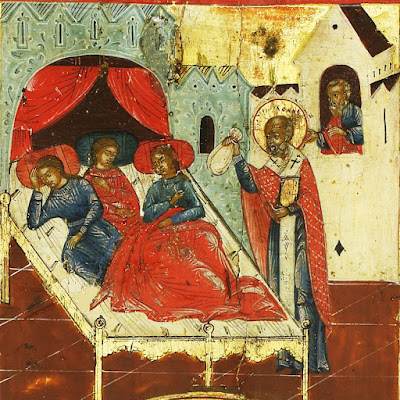Dear Parish Faithful & Friends in Christ,
As we are about to embark on yet another Church New Year on September 1, this wonderful passage from The Epistle to the Philippians comes to mind (4:8-9):
“Finally, brethren, whatever is true, whatever is honorable, whatever is just, whatever is pure, whatever is lovely, whatever is gracious, if there is any excellence, if there is anything worthy of praise, think about these things.”
The Apostle exhorts us to “think about these things.” That may actually take some effort on our part. For without having the time to pause and “think about these things,” we may have lost the inclination to do so. It would be spiritually hazardous to think that such virtues as enumerated here somehow come to us automatically, simply because we are “church-going” Christians. I therefore believe that it is imperative that we listen to the Apostle Paul and “think about these things” and in so doing give ourselves the opportunity to search out all that is wholesome in life.
In this passage, St. Paul has essentially borrowed a list of virtues that were common within various Greek philosophical schools current in his lifetime. The pursuit of such virtues would lead to the “good life,” for only a life dedicated to such a pursuit would be considered worthy of living. St. Paul apparently continued to respect this centuries-old tradition. We should bear this in mind whenever confronted with other religious beliefs or serious philosophical schools of thought. As much as we may disagree with them about some fundamental issues from our Christian perspective, there is also much to be found that is honorable, just, pure, lovely, gracious, excellent, and worthy of praise that are taught and promoted by these other religions and philosophies. To think otherwise would be to succumb to the temptations of a sectarian mind. A sect is a group that cannot find anything of value outside of its narrowly-defined borders. This eventually breeds some form of obscurantism and narrow-mindedness, if not eventually fanaticism. A “catholic” mind as understood by the great Church Fathers can rejoice in whatever is true even if found outside of the Church.
I recall a time when I was a seminarian, and the above theme entered into the ensuing conversation around us. Fr. John Meyendorff, the great patristic scholar, was present, and he was prompted to say: "I like to believe that Mozart will be in the Kingdom because of the beauty of the music that he created."
At the same time, the Apostle has included this exhortation in an epistle that is thoroughly and consistently Christocentric. The living reality of Christ permeates all of St. Paul’s thoughts and actions. There is nothing that is worthy of pursuit that is outside of Christ. For the Apostle Paul nothing will be able to compare with the knowledge of Christ. And this “knowledge” is not intellectual but deeply experiential. In one of his most famous passages in Philippians (3:7-8) he writes:
“But whatever gain I had, I counted as loss for the sake of Christ. Indeed I count everything as loss because of the surpassing worth of knowing Christ Jesus my Lord. For his sake I have suffered the loss of all things, and count them as refuse(Gk. skivala = rubbish, dung, excrement,) in order that I may gain Christ and be found in him …”
Anything that is of the truth somehow belongs to Christ and comes from Christ – even if not acknowledged. So the virtues that St. Paul exhorts the Philippians to pursue are found in Christ in a most preeminent form. Those virtues – though taught and found elsewhere - will find their most perfect manifestation in Christ. Yet the point remains that we can rejoice in all that is good wherever we encounter it. The Apostle assures us that with such an approach to life, the “God of peace” will be with us.
With the end of August, we have arrived at the end of the Church Year and prepare for the next. We have had every opportunity to deepen our relationship with Christ through the ongoing rhythm of fasting and feasting according to the Church liturgical calendar and, of course, in the Eucharist, the "sacrament of sacraments." The feasts of the Church and the Liturgy have actualized the presence of Christ and the Theotokos in the midst of the grace-filled life of the Church - the "sanctification of time as it has been called" - and within the depths of our minds and hearts. We have been further nurtured by the Word of God as proclaimed in the Holy Scriptures in our liturgical assemblies and in the quiet of our rooms with the door shut. As we live our lives in the surrounding world, perhaps we have been deeply and positively impacted through our human relationships, the beauty of the natural world, or an enduring work of art.
These God-given encounters reveal to us all that is true, honorable, just, pure, lovely, gracious, excellent and worthy of praise. In other words, we have had every opportunity to simply become more human - and, in becoming more human, we simultaneously draw closer to God. Further, the richness of life presupposes our ever-vigilant struggle against sin and our ongoing repentance. The Prayer of the Hours reveals to us the fruits of repentance: to "sanctify our souls, purify our bodies, correct our minds, cleanse our thoughts; and deliver us from all tribulation, evil and distress." That is indeed a great endeavor, "but with God all things are possible." (Mt. 19:27)
May the Church New Year be a blessing for everyone and for our parish community!













